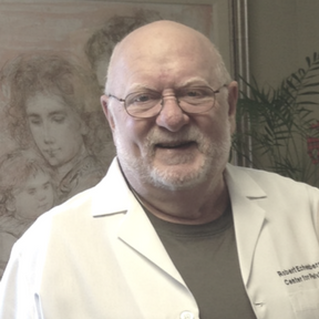|
We are a multidisciplinary team of pelvic health professionals who are dedicated to hope and healing for women with chronic genital, sexual, and pelvic pain.
And we believe we can change the way that this, often secret, female pain is understood and treated by practitioners, women, and the world. |
OUR STORY
Our story is probably very similar to your story. Though every story is unique and while we are not sure where we may be finding you in the middle of your story we believe this is the story of many women who suffer from persistent genital and sexual pain:
IMPORTANT Questions to Ask…
If you’ve Answered Yes to any one of these questions then Keep Reading…
You May Have Received the Wrong Treatment
You may have been treated for various maladies like yeast infections, bacterial infections, STDs, ovarian cysts, and urinary tract infections but still your symptoms continue.
Is Lubricate The Answer?
You may have tried to internet search for answers but the most you can find are articles about insuring you lubricate properly, which you already know.
What Are All These Big Words?
Had you known words like "Pelvic Pain", "Pelvic Floor Dysfunction", "Vaginismus", or "Vestibulodynia" you would have known where to start but you don't know what those words mean or even that they existed.
Is It “All In Your Head”?
These experiences can leave us feeling like "it's all in our heads". Perhaps you've even been told by a practitioner it's in your head.
Bad Advice
Or you've been given other unhelpful advice like "get drunk before sex" or "we just don't know, there's plenty of room in there".
You’re Not Alone
We are here to tell you that even though you feel isolated in your suffering, you are definitely not alone. In fact, The International Pelvic Pain Society, the Interstitial Cystitis Association, the National Vulvodynia Association, the Endometriosis Association, and the Institute for Women in Pain would all tell you that you are among tens of millions suffering from these disorders.
Did You Know?
It is estimated that 12% - 21% of women will at some point in their lives experience pelvic pain problems effecting their sexual health, and these conditions affect not only sexual functioning but also psychological well-being and quality of life.*
Have You Ever Felt Hopeless?
Experiencing depression, hopelessness, anxiety, fear, loss of relationships, and suicidal thinking are all among the completely natural reactions to feeling alone in your suffering and not getting answers that make sense to you.
Don’t Suffer In Silence
We personally know these experiences all to well. So while talking about issues of sexual functioning can be "taboo" we need to work together to change that, so others aren't resigned to suffer in silence.
Taboo Subjects
Speaking of "taboo" subjects, try bowel, bladder, and menstrual functioning. No one wants to talk about these. But they are the most common organ triggers for pelvic and genital pain disorders.
Can Sports Be Harmful?
In addition, many popular sports activities can cause injury to the pelvic floor. That’s because of the body mechanics that’s required in common sports like gymnastics, track and field, soccer, softball, volleyball, martial arts, dance, and many others.
Sports Related Injuries
Adding to these everyday experiences in girls and young women is a significant upsurge of significant sports related injuries, traumas of pelvic surgeries, childbirth, and the continuing burden of physical, emotional and sexual abuses that unfortunately remain so common in our society.
What’s The Solution?
Pain 'Down There' exists to help you connect these dots, so you can be aware of your own body's reactions to these triggers.
* From the scientific journal "Pain", 2011
IMPORTANT Questions to Ask…
- Have you experienced any Sexual Pain or Chronic Genital Pain?
- Have you been Misdiagnosed?
- Sent from one Doctor (or specialist) to another?
- Do you ever have pain, itching, burning or cramping?
- Does Clenching during Genital or Sexual Contact ever occur?
- Are you left with NO Answers or Solutions?
If you’ve Answered Yes to any one of these questions then Keep Reading…
You May Have Received the Wrong Treatment
You may have been treated for various maladies like yeast infections, bacterial infections, STDs, ovarian cysts, and urinary tract infections but still your symptoms continue.
Is Lubricate The Answer?
You may have tried to internet search for answers but the most you can find are articles about insuring you lubricate properly, which you already know.
What Are All These Big Words?
Had you known words like "Pelvic Pain", "Pelvic Floor Dysfunction", "Vaginismus", or "Vestibulodynia" you would have known where to start but you don't know what those words mean or even that they existed.
Is It “All In Your Head”?
These experiences can leave us feeling like "it's all in our heads". Perhaps you've even been told by a practitioner it's in your head.
Bad Advice
Or you've been given other unhelpful advice like "get drunk before sex" or "we just don't know, there's plenty of room in there".
You’re Not Alone
We are here to tell you that even though you feel isolated in your suffering, you are definitely not alone. In fact, The International Pelvic Pain Society, the Interstitial Cystitis Association, the National Vulvodynia Association, the Endometriosis Association, and the Institute for Women in Pain would all tell you that you are among tens of millions suffering from these disorders.
Did You Know?
It is estimated that 12% - 21% of women will at some point in their lives experience pelvic pain problems effecting their sexual health, and these conditions affect not only sexual functioning but also psychological well-being and quality of life.*
Have You Ever Felt Hopeless?
Experiencing depression, hopelessness, anxiety, fear, loss of relationships, and suicidal thinking are all among the completely natural reactions to feeling alone in your suffering and not getting answers that make sense to you.
Don’t Suffer In Silence
We personally know these experiences all to well. So while talking about issues of sexual functioning can be "taboo" we need to work together to change that, so others aren't resigned to suffer in silence.
Taboo Subjects
Speaking of "taboo" subjects, try bowel, bladder, and menstrual functioning. No one wants to talk about these. But they are the most common organ triggers for pelvic and genital pain disorders.
Can Sports Be Harmful?
In addition, many popular sports activities can cause injury to the pelvic floor. That’s because of the body mechanics that’s required in common sports like gymnastics, track and field, soccer, softball, volleyball, martial arts, dance, and many others.
- They place heavy emphasis on core strength,
- They require tight body positions and breathing from the chest instead of the abdomen.
- To perform many of these sports activities, tight and clenched stomach, buttocks, legs and chest breathing are necessary.
Sports Related Injuries
Adding to these everyday experiences in girls and young women is a significant upsurge of significant sports related injuries, traumas of pelvic surgeries, childbirth, and the continuing burden of physical, emotional and sexual abuses that unfortunately remain so common in our society.
What’s The Solution?
Pain 'Down There' exists to help you connect these dots, so you can be aware of your own body's reactions to these triggers.
* From the scientific journal "Pain", 2011
Why Pain 'Down There'?
Why call our site Pain 'Down There'? Doesn't using replacement words for the real medical terminology perpetuate ignorance and the forbidden nature of the true subject?
Great question, which we've also asked ourselves and weighed carefully. Perhaps team member, Stephanie Yeager, who experienced her own long road of healing from chronic pelvic pain can describe it best:
"Even now I have to go back to the dictionary in order to remember the terms. I think this is part of what made it so hard to find answers other than “it must be in your head”. Because if I’d of known to search online for words like Vulvodynia I would have. But I didn’t know that term even existed."
Women like Stephanie who are searching for answers and direction online may have never heard of vaginismus, vestibulitis, or even pelvic pain. But they know exactly what Pain 'Down There' means. And our number one priority is reaching them.
We think you will be pleased to find that beyond our name, we are using correct, medically accurate terminology in our instructional & educational video series Healing The Pain 'Down There'.
Great question, which we've also asked ourselves and weighed carefully. Perhaps team member, Stephanie Yeager, who experienced her own long road of healing from chronic pelvic pain can describe it best:
"Even now I have to go back to the dictionary in order to remember the terms. I think this is part of what made it so hard to find answers other than “it must be in your head”. Because if I’d of known to search online for words like Vulvodynia I would have. But I didn’t know that term even existed."
Women like Stephanie who are searching for answers and direction online may have never heard of vaginismus, vestibulitis, or even pelvic pain. But they know exactly what Pain 'Down There' means. And our number one priority is reaching them.
We think you will be pleased to find that beyond our name, we are using correct, medically accurate terminology in our instructional & educational video series Healing The Pain 'Down There'.





